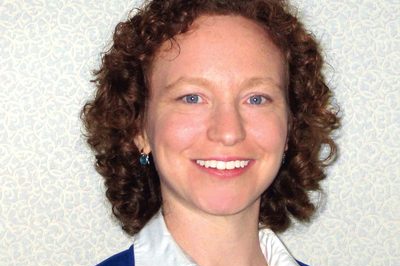ABC News’ “What Would You Do?” series recently set up several actors in a café near Dallas to test patrons’ responses to harassment of same-sex parents and their children. An actor playing a homophobic waitress harangued the parents (first two moms, then two dads) about how they were “bad for the kids” and told them to leave the restaurant.
In the end, over half the patrons spoke up and told the waitress her behavior was inappropriate.
That’s encouraging news for society. I’d like to believe the number of people who’d harass us outright is shrinking and the number who’d stand up for us is growing.
Even among those who would stand up for us, however (whether in person or through voting habits), there may still be some who do not feel entirely comfortable interacting with LGBT parents and our children. Much of this may be because of a fear of saying the wrong thing or being unsure of the terminology to use.
Here are five “don’ts” and five “do’s” that I’ve developed to help potential allies when they first encounter LGBT families. (Those with existing LGBT friends should use their better judgment about the friends’ sensitivities when it comes to discussing their families.) Many of these tips may be obvious to readers here — but I hope that by compiling them, I’ve given you an easy way to share them in your communities.
1. Don’t assume that just because we’re LGBT, we’re completely different from other parents. We change diapers. We fix scraped knees. We worry when our teens start to drive. We comfort, we care, we discipline. We make mistakes like anyone else. We try to learn from them. Above all, we love our children.
2. Don’t assume that just because we’re LGBT, we’re exactly the same as other parents. We often went through a different, costly process to have our children and secure our legal relationships to them. We may face greater bias in employment and housing. Same-sex couples face additional financial burdens opposite-sex married couples do not (paying taxes on employer-based medical insurance for a stay-at-home partner, for example). And the simple act of our children addressing us in public by our parental titles — “Mommy” and “Mama” or “Daddy” and “Papa” — can bring unwanted stares.
3. Don’t ask questions about how we created our families if you don’t know us. Many of us are happy to discuss these details once we know you (and may bend your ear if you catch us in the mood), but are not always so willing with strangers.
“Which of you is the real mom/dad?” is probably the most egregious question of this type. We both are. Maybe one of us bore the child in her womb. Maybe we used a surrogate. Maybe we adopted the child. Maybe one of us donated an egg that the other one carried. It doesn’t matter. Both of us are raising the child and committed to her or his well-being. That makes us both real parents.
Similarly, don’t ask a female couple “Who’s the father?” or a male couple “Who’s the mother?” Maybe there is a genetic parent whom we wish to acknowledge, and maybe there isn’t. Don’t assume, either way.
4. Don’t euphemize. Nothing conveys discomfort like using the terms “your lifestyle,” “people like you” or similar. Say “lesbian,” “gay,” “bisexual” or “transgender” if there’s a need for these terms in conversation.
5. Don’t assume that if one member of a couple looks more feminine and one more masculine, we fall into traditional mother-father roles. You may just find out the more masculine-looking mom carried the child, and the more feminine one is teaching him to play baseball.
6. Do refer to a same-sex couple (especially one committed enough to have kids) as “partners,” if you don’t know otherwise. They may prefer another term — spouses, wives, husbands, and will likely tell you if so — but “partners” won’t offend anyone. Under no circumstances use “friends,” which trivializes the relationship.
7. Do ask what the children call their parent(s), but only if there’s a need. If you are a teacher, coach, neighbor or someone else who has a need to know because you will be interacting with us, then this question is fine to ask of parents or children. Otherwise, it seems nosy.
8. Do comment about something your family has in common with ours. Does your son also like Legos? Did your daughter also love to dip her French fries in chocolate milk when she was the same age as ours? Let us know. We’d much prefer to talk about our similarities.
9. Do tell us how cute our kids are. Yeah, we’re suckers for that, too.
10. Do remember that no two LGBT parents are exactly alike, and may approach discussing their families in different ways.
On a separate note, please join me on June 1 for the sixth-annual Blogging for LGBT Families Day, a time for LGBT bloggers, our families and allies to write in support of LGBT families. Post on your own blog if you have one, then stop by Mombian (mombian.com) to submit the link. Or just come by to browse the complete list of posts and leave a comment.
Dana Rudolph is the founder and publisher of Mombian (www.mombian.com), a blog and resource directory for LGBT parents.
